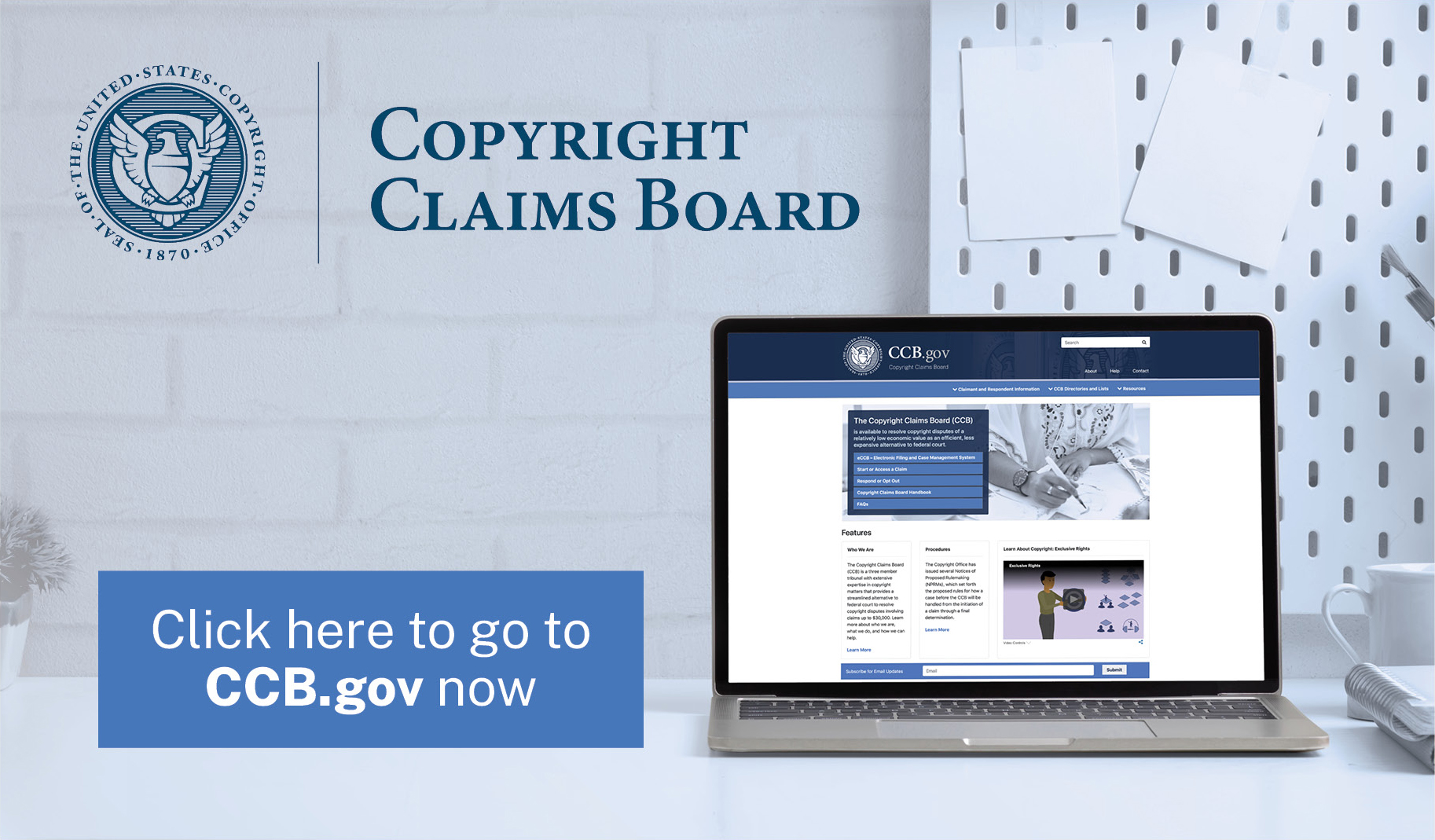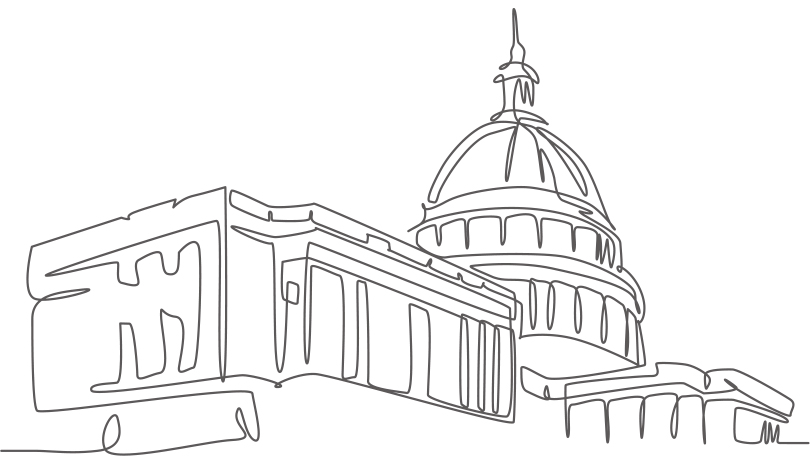
Copyright Small Claims and the Copyright Claims Board
In December 2020, Congress passed the Copyright Alternative in Small-Claims Enforcement Act of 2020 (CASE Act), which directed the Copyright Office to establish the Copyright Claims Board (CCB). The CCB is a three-member tribunal within the Office that provides an efficient and user-friendly option to resolve certain copyright disputes that involve up to $30,000 (called “small claims”).
You can read more about what the CCB is and why you might want to participate in a CCB proceeding at ccb.gov.

